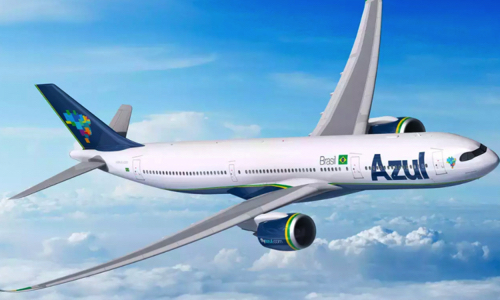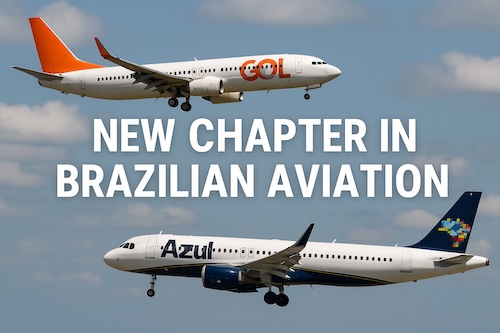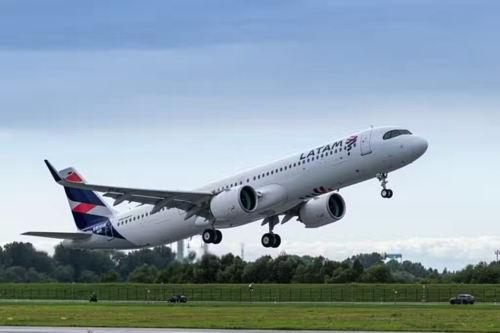BR Federal government launches Voo Simples program
On October 7, at a ceremony at the Planalto Palace, in Brasília, the President of the Republic, Jair Bolsonaro, and the Minister of Infrastructure, Tarcísio Gomes de Freitas, launched the Voo Simples program, which will bring a set of 50 measures in for the general aviation industry, especially for professionals, aircraft operators, educational institutions and small businesses.
The program of the National Civil Aviation Agency (Anac) and the Ministry of Infrastructure (Minfra) brings, according to the government, “structural improvements for the sector with a focus on simplifying procedures, aligning with international rules, increasing connectivity and promoting a new business environment, maintaining the high levels of security required.”
For Minister Tarcísio Gomes de Freitas, the proposed actions will provide greater efficiency to the sector by incorporating new technologies, digital transformation, freedom for innovation, and business models in the air modal. “We are launching initiatives that seek to reduce the weight of the State over the general aviation sector, which represents 97% of the total aircraft registered in the country and encompasses strategic sectors for the Brazilian economy, such as cargo transportation, air taxi, and aeroagricultural operations ”, evaluated the minister.
Anac’s CEO, Juliano Noman, explains that air connectivity will also benefit air connectivity, especially in more remote regions. “Air transport gains connectivity with the simplification of the aerodrome registration process in the Legal Amazon. We are also creating a regulatory framework for amphibious operations, guaranteeing a leap in mobility to locations in need of transport services, ”said Noman.
The requirements for air taxi companies are still being simplified, balancing the regulation in an appropriate way to the size of each company. The government’s idea is to allow new small operators to enter the market so that, at a lower cost, they can provide air transport services, increasing mobility offers in the least served areas, while always maintaining security.
Among the highlights of Voo Simples is the simplification of manufacturing, importing, or registering aircraft. Currently, the process requires many phases, and it may take months to import and register a plane in the country. According to the government, small companies that serve remote locations will have more agility in providing the service with this simplification.
The program also brings initiatives that will help agribusiness and aeroagricultural aviation responsible for spraying products on plantations. As for aircraft maintenance, the idea is to allow the use of a maintenance mechanic’s assistant, under remote supervision, for the aero-agricultural operation. This will allow an aviation mechanic who is closest to the aircraft to provide the necessary services quickly, without it being necessary, as it is today, to move a mechanic from a maintenance center, which can take days or even weeks.
REPEALED ACTS
During this Wednesday’s ceremony, decrees nº 76.590 / 1975 – on Integrated Regional Air Transport Systems (SITAR) – and those that altered them, decrees nº 99.255 / 1990 and nº 98.966 / 1990, were revoked by the President of the Republic. Decree No. 97.46 4/1989, which defines detailed procedures so that the owner or commander of the foreign aircraft can request authorization to land or fly over in the country.
SITAR allowed the country’s division into regions where airlines could exclusively explore routes to serve locations with low and medium air traffic potential. However, since 1991, the geographical restrictions imposed on the sector were eliminated, eliminating the need for the decree still in force.
With the revocation of the overflying decree, the bodies involved in the entry authorization process and overflying the Brazilian territory will be able to improve their practices, streamline processes, eliminate unnecessary or disproportionate formalities, reduce the waiting time for issuing the authorization and adopt new ones—technological solutions for the provision of services.
Also, at the event, the Minister of Infrastructure signed, together with the Minister of Economy, the revocation of Interministerial Ordinance No. 3,016 / 1988, which contained rules already contained in other legal provisions, such as the Brazilian Aeronautical Code (CBA) and the Aeronaut Law.
Also signed by Anac’s CEO, Juliano Noman, the ordinance that institutionalizes the program and a resolution that places in public consultation the rule that will regulate the extension of the periodicity of simulator training, simplify the training requirements for the copilot, and end with validity of qualifications. The use of digital documents will be expanded, with a view to the future integration of CHT with other national identity documents, linked to improvements in updating registration data with the regulator.



